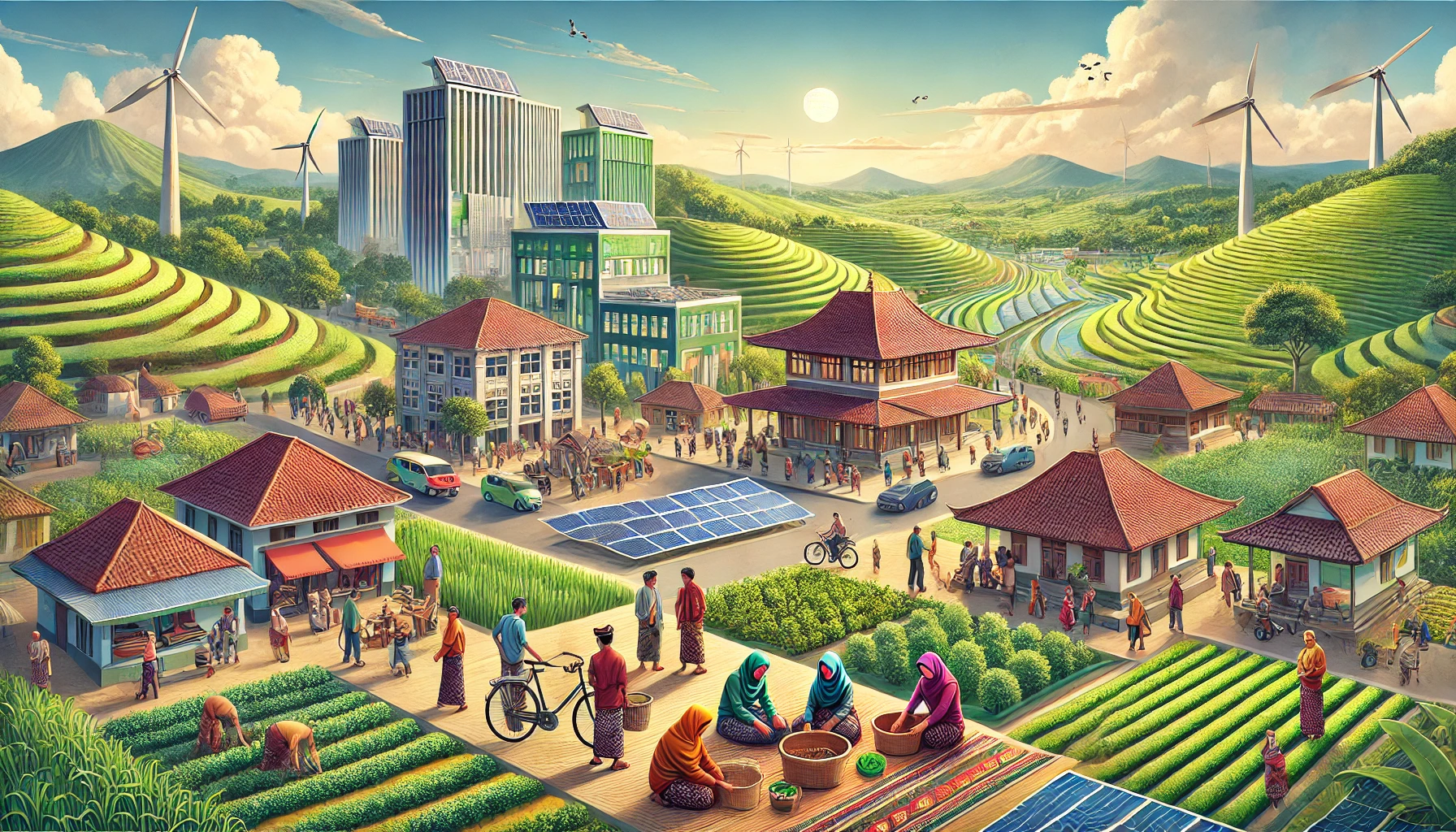How Public Interest and Cultural Knowledge Drive Sustainable Development in Indonesia
The study explores the relationship between public interest, knowledge, and local wisdom in the implementation of SDGs in Yogyakarta, Indonesia, revealing a strong correlation between awareness of local wisdom and engagement with sustainable development initiatives. The findings emphasize the need for integrating cultural values and increasing public education to drive SDG success.

A comprehensive study by Noor Martadani from the Sociology Department of Universitas Widya Mataram, along with Farid Abud Alkatiri from Universitas Indonesia and Elvi Ratna Irawati Huath from Universitas Widya Mataram, explores the intricate relationships between public interest, knowledge, and local wisdom in the implementation of the Sustainable Development Goals (SDGs) in Indonesia. The research focuses specifically on the Yogyakarta City area, which has a high Human Development Index, making it an ideal setting to study how these factors interplay in the pursuit of sustainable development. The SDGs are a global initiative launched by the United Nations to replace the Millennium Development Goals, aiming to tackle key social, economic, and environmental challenges worldwide. Despite their global nature, the SDGs require localized strategies, especially in countries like Indonesia where regional disparities, cultural contexts, and varying levels of public awareness can significantly influence their success. Indonesia has achieved about 70% of the SDG targets, according to government data, but lags behind regional peers like Malaysia, Singapore, Vietnam, and Thailand in meeting these global goals.
The Role of Public Awareness in SDG Success
One of the primary barriers to full SDG implementation in Indonesia is the public's limited understanding and engagement with the goals. Many citizens remain unaware of the SDGs, and this lack of knowledge often translates into limited public interest in participating in sustainable development initiatives. This issue is compounded by the fact that SDG programs in Indonesia have yet to fully integrate local cultural values, or local wisdom, into their framework. Local wisdom, a term used to describe the cultural knowledge, practices, and values that are unique to specific regions or communities, is a critical yet underutilized resource in the push for sustainable development. This research aims to fill that gap by exploring the correlations between public interest in sustainable development, knowledge of the SDGs, and the influence of local wisdom in shaping these attitudes.
Yogyakarta as a Case Study for Local Wisdom
To understand these relationships, the researchers used a mixed-method approach, combining quantitative data from a survey of 100 respondents in Yogyakarta City with qualitative insights from group discussions. Yogyakarta was chosen as the study location due to its unique cultural heritage and its relatively high Human Development Index score. The survey sought to measure the level of public interest in the SDGs, the extent of public knowledge about the goals, and the degree to which local wisdom influences people’s understanding and support of sustainable development. The findings were then analyzed statistically using Pearson correlation to determine the strength and significance of these relationships. The results of the study were clear: there is a strong, positive correlation between knowledge of the SDGs and public interest in sustainable development. People who are more knowledgeable about the SDGs are significantly more likely to be interested in sustainable development efforts and to participate in related programs.
Positive Correlation between Local Wisdom and SDGs
Moreover, the research found a similar positive correlation between knowledge of local wisdom and interest in the SDGs. People who possess a deeper understanding of local cultural practices and values are more likely to be engaged with sustainable development initiatives. This suggests that local wisdom, when effectively integrated into SDG programs, can play a key role in driving public interest and participation. In Yogyakarta, where traditional values and practices are still deeply ingrained in everyday life, the inclusion of local wisdom in SDG strategies could be particularly effective in fostering community involvement. The researchers emphasize that while public knowledge of the SDGs is currently limited, there is significant potential to increase engagement through targeted educational campaigns, public seminars, and community-based initiatives that highlight the relevance of the SDGs to local cultural contexts.
Government Support and Community Engagement
The study also points out the importance of government and institutional support in this effort. Local governments, educational institutions, and social organizations must work together to promote the SDGs and raise public awareness about their importance. The researchers suggest that more intensive communication and education strategies are needed to bridge the knowledge gap, particularly in regions where awareness of the SDGs remains low. Public campaigns, training sessions, and workshops that focus on environmental sustainability, resource management, and the benefits of sustainable practices could help build a more informed and engaged populace. Additionally, policies that protect and promote local wisdom are essential for maintaining cultural diversity while advancing sustainable development. The researchers argue that by fostering a greater understanding of local wisdom and its role in sustainability, local governments can encourage more meaningful public participation in SDG initiatives.
A Path Forward for Sustainable Development
The paper underscores the critical role that public interest and knowledge, combined with local wisdom, play in the successful implementation of the SDGs in Indonesia. While the country has made progress toward achieving these global goals, further efforts are needed to engage the public and integrate cultural values into sustainable development strategies. By improving public awareness and fostering a deeper connection between the SDGs and local wisdom, Indonesia can not only accelerate its progress toward these goals but also ensure that sustainable development is rooted in the cultural and social fabric of its communities. This, in turn, will help create a more sustainable and equitable future for all.
- READ MORE ON:
- Sustainable Development Goals
- SDGs
- United Nations
- SDG
- Yogyakarta
- FIRST PUBLISHED IN:
- Devdiscourse










